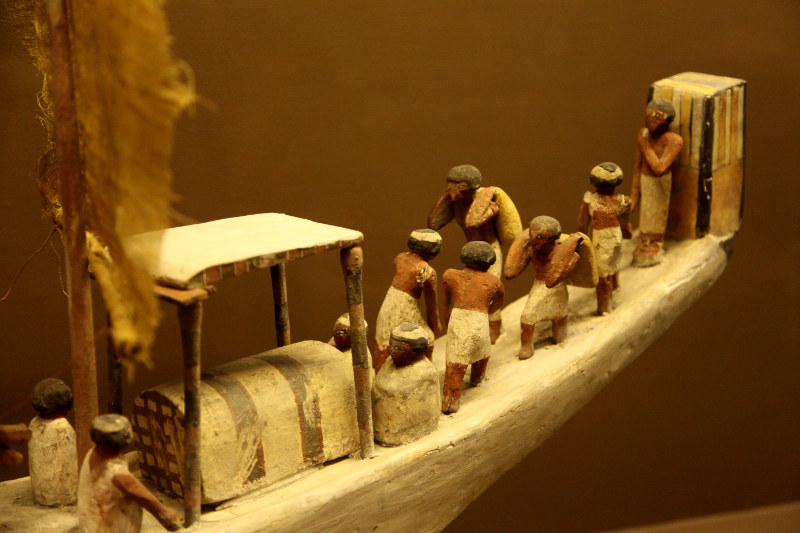To begin with (and prevent confusion), there are three names/places that should be called out when referencing the Rosicrucian Egyptian Museum:
1. The Ancient Mystical Order Rosae Crucis (AMORC), founded by Dr. Harvey Spencer Lewis in 1915 as an educational order that focuses on teaching the ancient mystical traditions and science practiced in Rosicrucianism.
2. Rosicrucian Park, founded by AMORC in 1927 and is located in the Rose District of San Jose.
3. The Rosicrucian Egyptian Museum started as a small museum in the 1920s and expanded after a tour of Egypt taken by Lewis in 1929. The current building, located in Rosicrucian Park, was built in 1966 and is modelled after the Temple of Amon in Karnak. The Rosicrucian Order (AMORC) funds the museum.
I’ll admit, it was a bit of a surprise discovering the museum in San Jose… not where I expected to find a large chunk of Egypt. The collection here is the largest in Western North America and is simply too much to take in during one visit.
The collection has human, feline, avian, and bovine mummies, various funerary collections, collections of Dynasty 11 and Middle Kingdom model boats, a large number of Sekhmet, Hathor, Isis, Horus idols and artifacts, papyrus scrolls, a fragment from the Book of the Dead, Tutankhamen artifacts, a bust of Nefertiti, a large collection of Babylonian artifacts, a cast replica of the Law Code of Hammurabi, and a large collection of Cuneiform Tablets.
The crown jewel of the museum is the re-creation of a “rock-cut tomb” complete with hieroglyphs and damage left by grave robbers. Every few hours docents give an energetic tour of the tomb.
The entire museum experience is enough to make your eyes water with joy (if you’re a history geek like myself), and a huge, huge surprise in San Jose! I’m pretty sure my geek-out and long-winded explanation of burial practices over the body, funerary offerings, and ex-rays taken of a Dynasty 26 woman (known as Tahure the “Lady of the House”) freaked people out.
